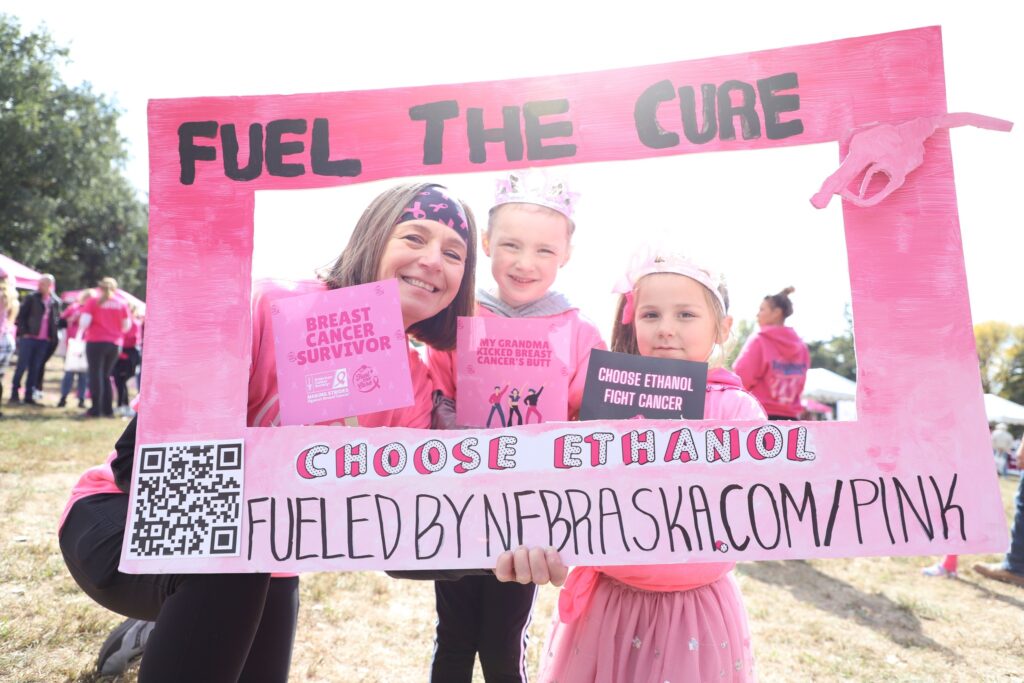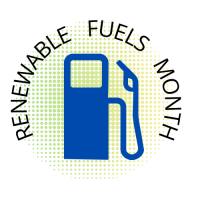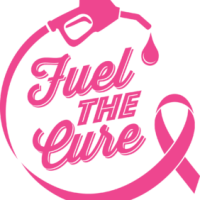Fund breast cancer research by filling up your gas tank throughout October!
Annually, throughout October, when drivers choose higher blends of ethanol – E15, E30 and E85 – at Fuel the Cure gas stations, it triggers a 3-cent donation for each gallon sold that goes towards cancer research and services. Drivers will be able to identify which retailers are supporting this important cause by looking for pink signage at the pump, on the windows and at the counter.
Since 2018, the campaign total has grown to $64,572. Donations from fuel retailers benefit the Fred and Pamela Buffett Cancer Center in Omaha, a nationally distinguished cancer facility that uses the most advanced biomedical and technological tools available to identify the causes behind cancer to create precise therapies for each cancer patient. This includes Nebraskans, as well as cancer fighters worldwide.
Fuel the Cure also sponsors the American Cancer Society of Nebraska’s Making Strides Against Breast Cancer Walk and provides vital funding to the Heartland Cancer Foundation, assisting over 300 Nebraska cancer patients with fuel costs by way of ethanol gift cards.

Gasoline with ethanol is healthier for people and the environment
Ethanol, a natural octane booster derived from Nebraska field corn, plays a pivotal role in displacing harmful aromatics in gasoline linked to cancer, heart disease and respiratory issues. By encouarging it’s use, people can reduce their exposure. Since Nebraska is the No. 2 producer of ethanol, it’s available across the state and can be used year-round. To learn more about the right ethanol blend for your vehicle, visit fueledbynebraska.com.
Everyone is at risk of inhaling toxic chemicals used for octane in gasoline. These carcinogens make up 25% of a gallon of gas. You are exposed at the pump, from vehicle exhaust, and when these chemicals are released as greenhouse gases (GHG). The U.S. EPA classifies BTEX chemicals as toxic air pollutants known to cause cancer, adverse reproductive effects, and other health issues.
Funding cancer research improves mortality outcomes
According to the American Cancer Society, breast cancer is the most common cancer diagnosed among women in the U.S. However, thanks to funded research, the mortality rate for those battling cancer is declining. Currently, 1-in-8 women will be diagnosed with breast cancer in their lifetime. The Cancer Center treats all forms of cancer, emphasizing that men face a 1-in-2 chance of a cancer diagnosis while women face a 1-in-3 chance.
Breast cancer survivor Jenn Klein emphasizes the profound impact of cancer research, saying, “Several medications saved my life.” A funded researcher discovered two of the four chemotherapy treatments she underwent. Klein’s journey showcases the importance of continuous funding and support for groundbreaking treatments that offer hope to countless lives.


